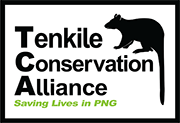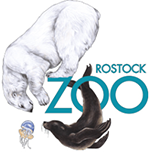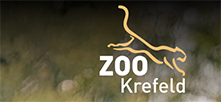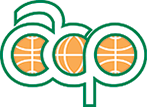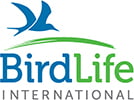Our Mission
To save lives in PNG – the lives of people, animals and their places.

Necessary Services
Provide urgent and necessary services to rainforest communities in Papua New Guinea that result in the relief of poverty and improve health.

Provide Opportunities
Facilitate processes that provide opportunity for rainforest communities in Papua New Guinea to govern, manage and protect their biological and cultural richness from exploitation.

Bottom Up Approach
Implement a bottom up approach to achieving TCA’s goals and objectives. To ensure rainforest communities have freedom of choice, as they advance into the 21st century.
Our Objectives
Saving Tree Kangaroos
The Tenkile and Weimang Tree Kangaroos are Critically Endangered because of hunting and limited distribution. Hunting moratoriums have been in place since 1999. Tenkile numbers have increased from 100 – 300 animals as a result.
Saving Biodiversity
The hunting moratorium has lead to local people taking into consideration all biodiversity. Some frog species and the Victoria’s Crowned Pigeon were considered to be locally extinct. People agreed to no longer hunt any species in designated “no-go” zones to protect all species of fauna and flora. This was in line with the cultural practice of “ples masalai” respecting spiritual and ancestral places.
Saving the Torricelli Mountain Range
Establishing a legally protected area within the Torricelli Mountain Range is the final tick we need to ensure the long term protection of biodiversity. A legally protected area in PNG means there is no large scale exploitation of the area such as logging and mining. Any future development would need to be approved by the local people and the Conservation Environment Protection Authority (CEPA).
Saving People
TCA currently works with 50 villages comprising 13,000+ people who own the Torricelli Mountain Range Conservation Area (TMRCA). They have the Critically Endangered (CR) Tenkile and Weimang Tree Kangaroos on their land. TCA has implemented a variety of sustainable development projects to assist PNG’s rainforest communities to improve health, increase education and alleviate poverty and hunger. We still have a long way to go …
Saving Cultural Identity
Part of the reason why PNG is losing its connection to nature is due to external influences such as religion, economics, technology and social aspects. At TCA we believe that at the core of environmental destruction is the loss of cultural identity to species and how natural resources are being undervalued. TCA aims to reconnect PNG people back to their culture and traditional practices, which are inline with sustainable resource management and biodiversity protection.
Saving the Planet
TCA wants to mitigate climate change. We do not want to see global temperatures rise. We do not want to see economies and ecosystems collapse around the world as a result of climate change. The New Guinea rainforest is the third largest rainforest in the world after the Amazon and Congo which means PNG has a huge role to play in mitigating climate change. TCA has two major projects that could be incorporated into a REDD+ or Payment for Environmental Services scheme that will minimise greenhouse gas emissions in PNG. They both need to be funded.
Saving TCA
TCA has been established since 2001. It has maintained and improved TCA Base-Lumi into an epicentre for conservation and development within Sandaun Province and Papua New Guinea. It requires on-going funding to keep operating at its present level including the employment of local staff who care for our captive Tree Kangaroos and TCA Base assets.
Community
The Tenkile Conservation Alliance was originally established by a network of zoos, the PNG museum, local government and individuals that wanted to work towards the recovery of the critically endangered Scott’s Tree Kangaroo (Dendrolagus scottae) locally known as Tenkile. A hunting moratorium was established with 13 villages in 1999 and this has grown to include 20 villages that have Tenkile on their land. A further 30 villages that have the critically endangered Weimang, or Golden-mantled Tree Kangaroo, (Dendrolagus pulcherrimus) have also joined the Alliance and now comprises over 12,000 people.
It was quickly realised that in order to protect the tree kangaroos the TCA needed to work very closely with the local communities that hunted the animals for food. Alternative protein sources were established in the form of rabbit farming, chicken farming and fish farming. The TCA also realised that sustainable development and success of these projects required basic service delivery to the village communities. Since 2004 the TCA has delivered water, sanitation, hygiene and health projects throughout the 50 participating communities ‘providing tangible health benefits’.. TCA embeds training and capacity building activities into all of its programs to ensure long term sustainability and community ownership.
Community results include:
- The successful breeding of rabbits in Tenkile Villages has led to two people being trained as “Rabbit farming trainers”. These trainers have successfully completed rabbit training courses to 24 Weimang villages.
- Complete handover of rabbit and chicken farming projects to local stakeholders. Leadership in rabbit farming identified (Vincent Kelele – Wigote Village) and supported by TCA as required.
- Local capacity built with the training and supervision of 16 Project Officers to implement the Water, Sanitation and hygiene Project.
- Successful installation of 350 x 1000 gallon Tuffa Tanks and 303 VIP toilets throughout 50 participating villages.
- Successful implementation of ‘one toilet per household’ – a first for the country.
- Delivery of Health and Hygiene Education Program to 50 villages including Community Led Total Sanitation (CLTS), Participatory Health and Sanitation Transformation (PHAST) and TCA’s own interactive HIV/AIDS and Family Planning awareness program.
- Delivery of leadership and financial management training with local village level WASH committees.
- Delivery of Water and Sanitation project management course focusing on managing attitudes and behaviour among participating communities to ensure project success.
- Partnership with WaterAid (Australia) in place to continue improving water and sanitation throughout project area.
- Local Project Supervisors employed and significant management responsibilities delegated to ensure future sustainability of TCA project management.
- Significant improvements to TCA Base-Lumi including community accommodation, staff accommodation and research station.
Conservation
The island of New Guinea contains 7% of the world’s biodiversity and is the third largest expanse of tropical rainforest following the Amazon and Congo. The Torricelli Mountain Range, north-west Papua New Guinea (PNG), is unique in that it is the only place known that is home to three species of tree kangaroo, the Scott’s Tree Kangaroo (Tenkile), the Golden-mantled Tree Kangaroo (Weimang) and the Grizzled Tree Kangaroo (Yongi). Other endemic species include the Black-spotted cuscus (PNG’s largest cuscus) and the Northern Glider. The Tenkile, Weimang, Black-spotted Cuscus and Northern Glider are all classified as critically endangered by the IUCN. The Torricelli’s, therefore have a high level of endemism and biodiversity significance.
The Tenkile Conservation Alliance (TCA), was originally established in 2001, to protect the unique biodiversity of the Torricelli Mountain Range; PNG. TCA uses the tree kangaroos as flagship species for achieving broad forest conservation outcomes with a main objective to establish this mountain range as a legislated Conservation Area.
Conservation results include:
- Continuation of the hunting moratorium for all participating villages which has increased to 20 “Tenkile” Villages and 30 “Weimang” villages. There has been no significant hunting of any fauna within the Tenkile habitat since 2004 or in the Weimang habitat since 2007
- Landowner agreement to establish a Conservation Area within the Torricelli Mountain Range with the 20 Tenkile villages and 30 Weimang villages. All these villages have designated hunting areas from non-hunting areas and written their own rules and penalties for the long-term management of the area
- Establishment and maintenance of seven Tenkile research sites and seven Weimang research sites
- Training manual produced and workshops held to build capacity among local Research Officers and Distance Sampling Officers in point transect distance sampling techniques
- Significant capacity building implemented to ensure local ownership and management of Tenkile, Weimang and other wildlife in the research sites across the Torricelli Mountain Range. Since 2007 all scientific data was collected by TCA’s Research Officers and Distance Sampling Officers, independent of the TCA Director
- Preliminary results from Distance Sampling Research indicate a significant increase in the population of Tenkile. Approximately 160 (2004) to 307 (2008)
- Initial work on camera trapping, since 2011, has recorded the three tree kangaroos, many mammals and birds. Some species recorded are new species to science
- Conservation Area Management Committees established in all Tenkile and Weimang villages and significant capacity building conducted for all committee members in scientific knowledge and natural resources management
- Community Conservation education programs conducted since 2003 – school visits, teacher training, puppet shows, radio programs, drama education programs have all been implemented throughout the project area, motivating and engaging thousands of people leading to the participation of 50 moratorium villages
Conservation
The island of New Guinea contains 7% of the world’s biodiversity and is the third largest expanse of tropical rainforest following the Amazon and Congo. The Torricelli Mountain Range, north-west Papua New Guinea (PNG), is unique in that it is the only place known that is home to three species of tree kangaroo, the Scott’s Tree Kangaroo (Tenkile), the Golden-mantled Tree Kangaroo (Weimang) and the Grizzled Tree Kangaroo (Yongi). Other endemic species include the Black-spotted cuscus (PNG’s largest cuscus) and the Northern Glider. The Tenkile, Weimang, Black-spotted Cuscus and Northern Glider are all classified as critically endangered by the IUCN. The Torricelli’s, therefore have a high level of endemism and biodiversity significance.
The Tenkile Conservation Alliance (TCA), was originally established in 2001, to protect the unique biodiversity of the Torricelli Mountain Range; PNG. TCA uses the tree kangaroos as flagship species for achieving broad forest conservation outcomes with a main objective to establish this mountain range as a legislated Conservation Area.
Conservation results include:
- Continuation of the hunting moratorium for all participating villages which has increased to 20 “Tenkile” Villages and 30 “Weimang” villages. There has been no significant hunting of any fauna within the Tenkile habitat since 2004 or in the Weimang habitat since 2007
- Landowner agreement to establish a Conservation Area within the Torricelli Mountain Range with the 20 Tenkile villages and 30 Weimang villages. All these villages have designated hunting areas from non-hunting areas and written their own rules and penalties for the long-term management of the area
- Establishment and maintenance of seven Tenkile research sites and seven Weimang research sites
- Training manual produced and workshops held to build capacity among local Research Officers and Distance Sampling Officers in point transect distance sampling techniques
- Significant capacity building implemented to ensure local ownership and management of Tenkile, Weimang and other wildlife in the research sites across the Torricelli Mountain Range. Since 2007 all scientific data was collected by TCA’s Research Officers and Distance Sampling Officers, independent of the TCA Director
- Preliminary results from Distance Sampling Research indicate a significant increase in the population of Tenkile. Approximately 160 (2004) to 307 (2008)
- Initial work on camera trapping, since 2011, has recorded the three tree kangaroos, many mammals and birds. Some species recorded are new species to science
- Conservation Area Management Committees established in all Tenkile and Weimang villages and significant capacity building conducted for all committee members in scientific knowledge and natural resources management
- Community Conservation education programs conducted since 2003 – school visits, teacher training, puppet shows, radio programs, drama education programs have all been implemented throughout the project area, motivating and engaging thousands of people leading to the participation of 50 moratorium villages
Culture
TCA has identified that the local communities are very much in tune with their environmental, social and economic needs. People know exactly what they want. The TCA has worked very closely with 50 village communities at the foothills of the Torricelli Mountain Range for over a decade. During this time we have developed a very strong relationship built on trust, integrity, transparency and accountability. At the heart of our work is an amalgamation and mutual respect of combining scientific and traditional knowledge. We work towards the protection of natural resources, building community cohesiveness and respecting traditional cultures within PNG.
Cultural change results include:
- A sense of pride among communities – men cried when they saw the Tenkile photo taken from a camera trap and when the animals were seen on peoples land for the first time in 20 years.
- Commitment from local communities – there has been no hunting of the Tree kangaroos for over a decade.
- Village cohesiveness – communities have worked together despite prior disputes in order to deliver water tanks by foot into the villages.
This program is an outstanding model of how effective conservation outcomes may be achieved and assessed in developing communities when they are coupled with development of sustainable resource, economic and social alternatives.
